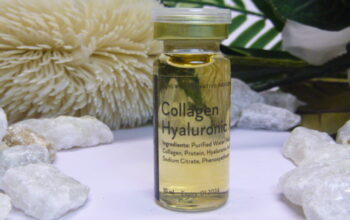Women’s health is a complex and multifaceted topic, with many experiencing unique challenges throughout their lives, especially during menstruation and menopause. From the physical discomfort of premenstrual syndrome (PMS) to the emotional and physical changes during menopause, women often seek alternative methods to alleviate their symptoms. One such method that has gained increasing attention in recent years is the use of CBD (cannabidiol) to address these issues. In this blog post, we will explore the potential benefits of CBD in managing PMS and menopausal symptoms.
Understanding PMS and Menopause
Premenstrual syndrome (PMS) is a condition that affects many women in the days leading up to their menstrual cycle. It encompasses a wide range of symptoms, including mood swings, bloating, cramps, headaches, and breast tenderness. These symptoms can vary in severity and duration from woman to woman, but they are generally considered a natural part of the menstrual cycle.
Menopause, on the other hand, is a significant life transition that typically occurs between the ages of 45 and 55. During menopause, a woman’s reproductive system undergoes a series of hormonal changes, leading to the end of her monthly menstrual cycles. Alongside this change, women often experience symptoms like hot flashes, night sweats, mood swings, and changes in bone density, which can significantly impact their overall quality of life.
The Role of the Endocannabinoid System
To understand how CBD may benefit women experiencing PMS and menopause, it’s essential to delve into the endocannabinoid system (ECS). The ECS is a complex cell-signaling system found in the human body, involved in regulating a wide range of physiological processes, including mood, pain perception, and immune function.
The ECS comprises three main components: endocannabinoids (naturally occurring cannabinoids produced by our bodies), receptors (such as CB1 and CB2 receptors), and enzymes that help break down endocannabinoids. When endocannabinoids bind to their respective receptors, they help maintain balance in the body, or what’s known as homeostasis.
How CBD Works in Women’s Health
CBD, a compound derived from the hemp plant, has been shown to interact with the ECS, potentially influencing the body’s response to various symptoms associated with PMS and menopause.
- Pain and Inflammation: Many women experience pain and inflammation during their menstrual cycles or menopause. CBD is known for its anti-inflammatory properties and may help alleviate these discomforts by reducing inflammation and modulating pain perception.
- Mood and Emotional Well-being: Emotional fluctuations are common during PMS and menopause, and CBD may help stabilize mood and reduce feelings of anxiety and depression. Studies suggest that CBD can influence the brain’s serotonin receptors, contributing to improved emotional well-being.
- Sleep Disturbances: Both PMS and menopause can disrupt sleep patterns due to symptoms like night sweats and anxiety. CBD’s calming effects may promote better sleep quality by reducing anxiety and helping to manage sleep disturbances.
- Hot Flashes and Night Sweats: Hot flashes and night sweats are hallmark symptoms of menopause. While more research is needed, some anecdotal evidence suggests that CBD can help alleviate these symptoms, possibly by regulating the body’s temperature and reducing excessive sweating.
- Bone Health: Osteoporosis and decreased bone density are concerns for women as they age, especially during menopause. Some studies suggest that CBD may promote bone health by interacting with the ECS to regulate bone remodeling processes.
- Hormonal Balance: CBD may indirectly influence hormonal balance by reducing stress, which can be a major contributor to hormonal imbalances and exacerbate PMS and menopausal symptoms.

Safety and Dosage Considerations
It’s important to note that while CBD shows promise in women’s health, it’s essential to use it responsibly and consult with a healthcare professional, especially if you’re already taking medication or have underlying health conditions. Dosage recommendations can vary widely, and individual responses to CBD can also differ. Starting with a low dose and gradually increasing it is a common approach to finding the right balance.
Additionally, it’s crucial to choose high-quality CBD products from reputable sources to ensure you are getting a product that is safe and free from contaminants. Always check for third-party lab testing results to verify the product’s potency and purity.
Conclusion
CBD’s potential benefits in managing PMS and menopausal symptoms make it an intriguing option for women seeking natural remedies to improve their overall quality of life during these challenging life stages. While more research is needed to fully understand its mechanisms and effectiveness, the growing body of anecdotal evidence and preliminary studies suggest that CBD may offer relief from various symptoms associated with PMS and menopause.
As always, it’s important to approach CBD use with caution and consult with a healthcare professional to determine the most suitable approach for your specific needs. Women’s health is a vital and complex aspect of overall well-being, and exploring alternative options like CBD can be a step towards finding the right solutions to improve the quality of life for women during these transformative stages. If you enjoyed this article about CBD then visit Thoughtnova for more interesting articles.





